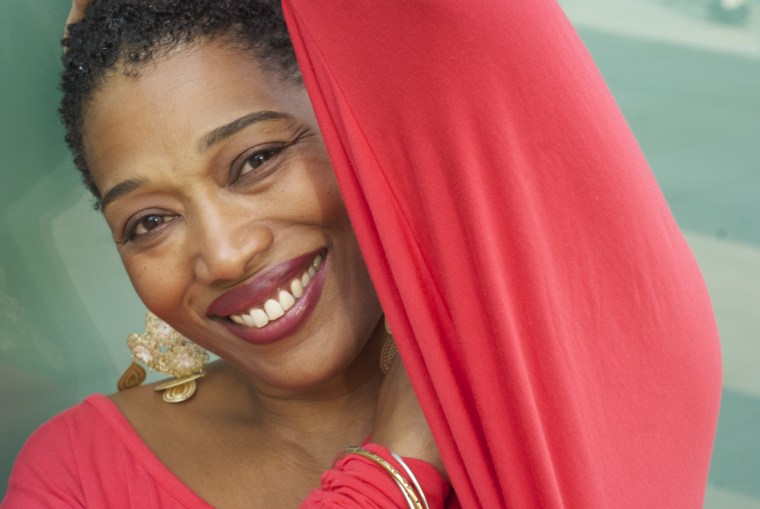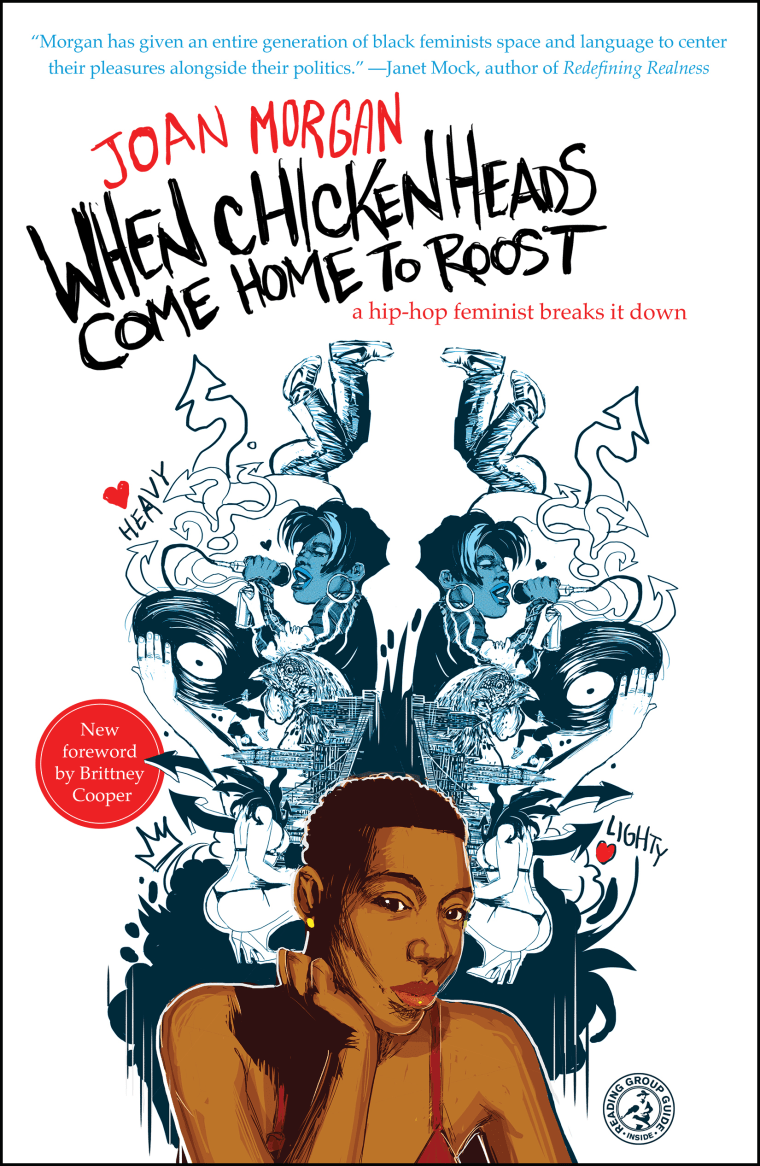‘Being a chickenhead is a young woman’s game, so if that’s your only currency it’s a strategic problem. But beauty and erotics are currency just like anything else.’~ Joan Morgan
After nearly two decades, Joan Morgan’s book, When Chickenheads Come Home to Roost: My Life as a Hip Hop Feminist, was just reissued by Simon & Schuster, (with the audio version voiced by actress Joy Bryant coming soon.)
Chickenheads, a phrase from back in the day, referred to women who traded on their hotness to pull men of means. Morgan wrote the book to explore some of the quandaries young black women face in choosing which path to take to the top. After a career as a journalist, she’s chosen a move to the more financially stable arena of academia and is finishing up her Ph.D. in American Studies at New York University.
The book features a foreward from Brittney Cooper, professor at University of Rutgers, and co-founder of the Crunk Feminist Collective. Cooper writes, "Because Joan had the courage to put her whole self on the page, she … created a movement of crunk-ass Black women showing up in the academy, challenging professors to let us bring our whole ratchet, working class, outwardly polished, inwardly jagged, crying loving turnt-up selves into the room."
NBCBLK contributor Pamela K. Johnson caught up with Morgan to talk Beyoncé, Melania and what it's like being a strong Black woman in recovery.

How has your work has influenced the generation coming up behind you?
It established a critical intersection in the field of Black feminism: the hip hop feminist scholar. People are now doing their dissertations on hip hop feminism and it’s taught internationally. This allowed a lot of young women and not-so-young women to see themselves in feminism.
How have you changed since you wrote it?
I started writing it at 31, and now I’m 51. I’ve been married, become a mom, and got divorced. The book’s turning 18 and so is my child; I’m sending a young man out into the world, and to college to find his way. I reread the book recently to work on the afterword and I was tickled to see the young woman I was.
In the book, you say that many young women walk the world with a sense of entitlement, but reproductive rights, voting rights, and a lot of protections are vulnerable now. How do you see young women of color responding to this?
Feminism is having a rebirth, and we have the vehement disrespect of the political right to thank for that. There’s often a struggle as to whether women feel they need feminism. But people are wrestling with it in a way that’s different from two years ago. For instance with reproductive rights, the number of people requesting intrauterine devices has increased 900 percent since Donald Trump became president.

You had a surprising insight as to why more than 50 percent of voting white women refused to elect a female president.
Hillary was problematic for them because they would rather be Melania. They have chickenhead envy. But when a woman marries the playboy millionaire, she’s associated with power, rather than having real power herself. Those voters are okay [with the white woman] who wants to stay home, be rich, and not do s---. Michelle Obama had to work, Melania doesn’t.
Are you judging chickenheads?
I don’t have a moral problem with them. The stance of the book is that there’s not that much difference in desires between chickenheads and non-chickenheads; the difference is in how you choose to go about it.
"There’s often a struggle as to whether women feel they need feminism. But people are wrestling with it in a way that’s different from two years ago."
Being a chickenhead (which was the label of that moment) is a young woman’s game, so if that’s your only currency it’s a strategic problem. But beauty and erotics are currency just like anything else. They will always exist in a society run by patriarchy and capitalism.
Beyoncé’s visual album Lemonade sparked considerable dialogue on black feminism? How did you react to that?
If someone asked me if I ever thought there would be a moment where there would be a Black global international pop icon who’d declare herself a feminist, I would’ve have said, “Hell no.”
Some people are impatient with her, though. They want her master Black feminist theory overnight, but that’s not how any of this works. There’s no such thing as a perfect feminist, you don’t have to check every single box before you sign on.
You say you’re a strong Black woman in recovery…
Yes, because I’m liable to go back into that mode where I’m doing way too much, and not remembering to say “no.” I’m going to New Orleans for a couple of days; I went to Guadeloupe in January. In the past I would have pushed to my own detriment like: “You’re a strong Black woman, your mother did it, her mother did it.”
What concerns me about the current “bad bitch” or “boss bitch” is this notion that you just grind till you drop, without valorizing the inside work that needs to be done to make sure you’re a boss bitch for the long haul.

